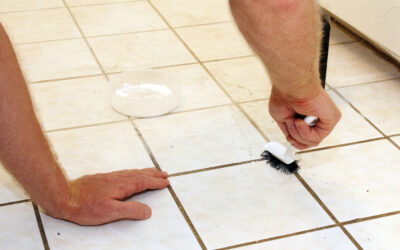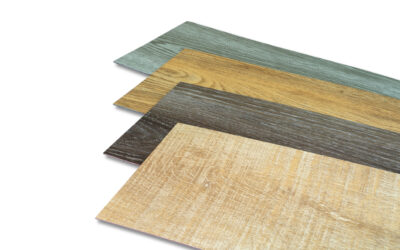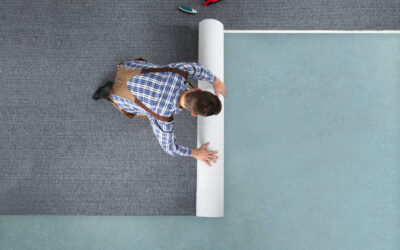Hardwood FAQ
Q. Can we install hardwood flooring if we have a dog or other indoor pets?
Many hardwood floors are installed in homes with pets; however, a pet’s claws may scratch the finish of the wood flooring. Also, pet damage to the flooring is not warranted by the manufacturers in most situations. Keep the pet’s claws trimmed and clean up any messes immediately. It is best not to put the pet’s food or water bowl directly on the wood flooring.
Q. What is the most durable hardwood floor available?
Most hardwood floors are treated with up to 10 coats of an aluminum oxide finish. While this certainly helps the durability of the floor, it is the hardness of the floor that will give the best indication of durability. Refer to the Janka Hardness rating for a true indication of hardness on selected species.
Q. Is it safe to use hardwood flooring in a kitchen?
Use caution when installing hardwood flooring in a kitchen. A kitchen is prone to food and liquid spills which can raise the wood’s grain or permanently stain or damage a hardwood floors finish. Be sure to wipe up spills immediately with a dry, clean cloth.
Q. Is a solid wood flooring better than an engineered wood floor?
No. The thicker and better-quality engineered woods will last for years and years and can be refinished once or twice. Also, the technology and factory-applied, UV-cured urethane finishes with melamine that are used today by hardwood flooring manufacturers make a tough, durable finish and are available on both engineered and solid wood floors. Engineered wood floors are also much more dimensionally stable than solid hardwood flooring so they can be used in many situations where solid wood is not recommended.
Q. Can we install hardwood flooring over a concrete slab?
Engineered wood floors can be glued down or floated over a dry, clean, fully-cured concrete slab that is on or below grade. If moisture or humidity is very high at times of the year, perhaps a non-wood flooring option would be a better choice. There are installation methods used by some hardwood installers to install a 3/4 “solid wood floor over a concrete slab, which includes a vapor barrier and building up a wood subfloor on top of the concrete slab. This is not recommended by most hardwood manufacturers –and it also adds considerable cost to the project.Installing an engineered wood floor over a concrete slab would be preferable.
Q. Can we put hardwood flooring over an existing floor?
In some situations, an engineered wood floor can be floated (or glued down) over the top of an existing floor. The existing flooring must be fully adhered to the sub-floor and be compressed enough so there is no bounce. For example, it is possible to install over a low-profile commercial type-level loop carpet, or glued-down vinyl flooring or tile. Be sure to read the manufacturer’s warranty to see if installing over an existing floor covering is covered under the warranty. Also, be sure the installer follows the manufacturer’s recommended installation procedures.
Q. Can I use paste wax on my hardwood flooring?
Today’s wood floors do not require a paste wax to the finish and paste waxes should not be used. Most hardwood floors today have some type of urethane finish and will cloud up and become sticky if a paste wax is applied to the finish.
Q. Can we install hardwood flooring of radiant heat?
Yes, depending on the type of radiant heat used in the home. It is generally recommended installing a “floating” engineered wood floor over the radiant heated sub-floor, but the installation must be done according to the manufacturer’s exact specifications. Also, the surface temperature of the sub-floor must not exceed 85 degrees to avoid drying out or distorting the wood planks. Be sure to check the manufacturer’s written warranty to be sure they will warrant installing their flooring over a radiant heated sub-floor.
HARDWOOD MENU
SHARE THIS ON SOCIAL MEDIA
Recent Posts
Tips for Cleaning the Grout in Your Tile Floors
Tuesday, October 25, 2022
Tile is resistant to stains, but over time the grout can begin to look grimy. Regardless of whether you have porcelain, ceramic, or natural stone tile, here are some tips for renewing your tile grout. Cleaning ProductsThere are numerous grout cleaning products on the...
Buying Guide for Luxury Vinyl Tile
Wednesday, October 19, 2022
Luxury vinyl tile (LVT) is an excellent flooring option not only because of its durability and water resistance, but because it closely mimics wood, making it a great style choice for any home. Here’s your guide for choosing the best LVT flooring. MaterialThe two main...
The Top 3 Flooring Options for Busy Families
Wednesday, October 12, 2022
When you have a young, busy family, you know that cleaning can take up a lot of time. Choosing the right flooring can significantly simplify your life. Here are the top 3 options to consider. HardwoodSome homeowners may initially shy away from hardwood simply because...
Improving Your Allergies with Hardwood Floors
Wednesday, October 05, 2022
Do you suffer from allergies? Did you know your home’s flooring can impact the severity of your allergies as much as what’s in the air? Hardwood flooring is a great option to help cut back on your symptoms. No Trapped IrritantsOne reason hardwood floors are allergy...
What to Expect with Professional Carpet Installation
Tuesday, September 27, 2022
Are you getting new carpet in your home? Professional installation is important to ensure proper installation so that the carpet will last as long as possible. Here’s what to expect with professional carpet installation. Installation PreparationFirst of all, the...





